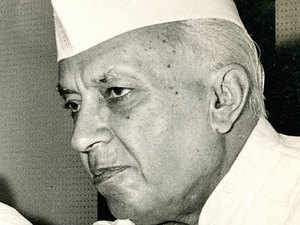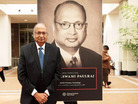
By Tripurdaman Singh
On 26 January, 1950, the new Constitution of India — ‘the most elaborate declaration of human rights yet framed by any state’ according to The Times of India – was inaugurated. For a poor, newly independent country, it was an audacious leap of faith. The world’s leading constitutional theorist, Oxford don Sir Kenneth Wheare, pronounced it ‘the biggest liberal experiment in democratic government’.
In the Constituent Assembly, B R Ambedkar had openly expressed his anxieties about the future of the Constitution in an India given to political hero-worship and wracked by socio-economic inequality. Seventy years on, with the Constitution right back at the centre of political discourse, many have come to share Ambedkar’s fears.
The idea of an existential threat to the constitutional order from the BJP and the RSS is a recurring theme in the current protests. As striking images of protesters holding the Constitution aloft and en masse readings of the Preamble have come to symbolise resistance to the Narendra Modi-led government, otherwise disparate voices from the Opposition are finding common ground as guardians of the Constitution. Coming after several years of alleged muzzling of dissent and misuse of legal tools such as the law of sedition, the battle cry of ‘defend the Constitution’ has electrified public opinion like little else.
The easiest parallel to draw has been with the Emergency — the most obvious assault on the Constitution and on Fundamental Rights that brought a disparate Opposition together with the rallying cry ‘Constitution in danger’. However, 1975 was not the first time that ‘Constitution in danger’ had become a potent rallying cry in Indian politics. That dubious honour belonged to 1951 when, barely 14 months after the Constitution had first come into existence and a full six months before the first ever general election, India’s first government led by Prime Minister Jawaharlal Nehru decided to prune Fundamental Rights via the First Amendment.
In 1951, the political balance of power was the exact opposite of what it is now. The Congress was the hegemonic political force and enjoyed an overwhelming majority in the provisional Parliament. The Hindu Mahasabha and the RSS inhabited the political margins. While stalwarts like Shyama Prasad Mookerji, Acharya Kripalani and Hriday Nath Kunzru graced the Opposition benches, Nehru continued to tower over the popular imagination as a larger than life figure.
The tussle began in March 1950 when, in response to severe criticism in the press about its response to the refugee influx in West Bengal and extra-judicial killings of communist activists in Madras, the government attempted to censor the Organiser, an RSS weekly. In response, K R Malkani — its long-serving editor — wrote: “To threaten the liberty of the press for the sole offence of nonconformity to official view… may be a handy tool for tyrants but (is) only a crippling curtailment of civil liberties in a free democracy… A government can always learn more from bona fide criticism of independent-thinking citizens than the fulsome flattery of charlatans.”
Malkani and the RSS challenged the censorship order in the Supreme Court and invoked Freedom of Speech and Expression enshrined in Article 19 of the Constitution. Their case was argued by the famous jurist N C Chatterjee — former president of the Hindu Mahasabha and father of future Communist stalwart Somnath Chatterjee. The SC struck down the censorship order and declared the relevant legislation to be unconstitutional.
Following this judgment, the Nehru government faced a series of judicial defeats in its attempts to proscribe free speech, and acquire zamindari property without paying fair compensation. The Congress party’s social agenda came to a grinding halt. This led directly to the First Amendment which placed new curbs on the freedom of speech and revalidated the law of sedition, effectively driving a coach and horses through the chapter on Fundamental Rights.
The prospect of a serious assault on civil liberties united a disparate set of voices in opposition to the Nehru government: Hindu nationalists like S P Mookerji and M R Jayakar, Gandhians like Acharya Kripalani, liberals like Hriday Nath Kunzru, socialists like Shibbanlal Saksena and Jayaprakash Narayan and Congress rebels like H V Kamath and Shyamnandan Sahay.
In Parliament, leading the charge for the Opposition, Shyama Prasad Mookerji — future founder of the Bharatiya Jan Sangh — had implored his colleagues: “Let me exhort and conjure you never to suffer an invasion of your political constitution, however minute the instance may appear, to pass by without a determined persevering resistance.”
His determined persevering resistance may not have prevented the First Amendment, but Mookerji’s prophetic warning to Nehru, delivered during the parliamentary debate remains relevant as ever: “Maybe you will continue for eternity, in the next generation, for generations unborn; that is quite possible. But supposing some other party comes into authority? What is the precedent you are laying down?”
Tripurdaman Singh is the author of Sixteen Stormy Days: The Story of the First Amendment to the Constitution of India. Views expressed here are personal.
On 26 January, 1950, the new Constitution of India — ‘the most elaborate declaration of human rights yet framed by any state’ according to The Times of India – was inaugurated. For a poor, newly independent country, it was an audacious leap of faith. The world’s leading constitutional theorist, Oxford don Sir Kenneth Wheare, pronounced it ‘the biggest liberal experiment in democratic government’.
In the Constituent Assembly, B R Ambedkar had openly expressed his anxieties about the future of the Constitution in an India given to political hero-worship and wracked by socio-economic inequality. Seventy years on, with the Constitution right back at the centre of political discourse, many have come to share Ambedkar’s fears.
The idea of an existential threat to the constitutional order from the BJP and the RSS is a recurring theme in the current protests. As striking images of protesters holding the Constitution aloft and en masse readings of the Preamble have come to symbolise resistance to the Narendra Modi-led government, otherwise disparate voices from the Opposition are finding common ground as guardians of the Constitution. Coming after several years of alleged muzzling of dissent and misuse of legal tools such as the law of sedition, the battle cry of ‘defend the Constitution’ has electrified public opinion like little else.
The easiest parallel to draw has been with the Emergency — the most obvious assault on the Constitution and on Fundamental Rights that brought a disparate Opposition together with the rallying cry ‘Constitution in danger’. However, 1975 was not the first time that ‘Constitution in danger’ had become a potent rallying cry in Indian politics. That dubious honour belonged to 1951 when, barely 14 months after the Constitution had first come into existence and a full six months before the first ever general election, India’s first government led by Prime Minister Jawaharlal Nehru decided to prune Fundamental Rights via the First Amendment.
In 1951, the political balance of power was the exact opposite of what it is now. The Congress was the hegemonic political force and enjoyed an overwhelming majority in the provisional Parliament. The Hindu Mahasabha and the RSS inhabited the political margins. While stalwarts like Shyama Prasad Mookerji, Acharya Kripalani and Hriday Nath Kunzru graced the Opposition benches, Nehru continued to tower over the popular imagination as a larger than life figure.
The tussle began in March 1950 when, in response to severe criticism in the press about its response to the refugee influx in West Bengal and extra-judicial killings of communist activists in Madras, the government attempted to censor the Organiser, an RSS weekly. In response, K R Malkani — its long-serving editor — wrote: “To threaten the liberty of the press for the sole offence of nonconformity to official view… may be a handy tool for tyrants but (is) only a crippling curtailment of civil liberties in a free democracy… A government can always learn more from bona fide criticism of independent-thinking citizens than the fulsome flattery of charlatans.”
Malkani and the RSS challenged the censorship order in the Supreme Court and invoked Freedom of Speech and Expression enshrined in Article 19 of the Constitution. Their case was argued by the famous jurist N C Chatterjee — former president of the Hindu Mahasabha and father of future Communist stalwart Somnath Chatterjee. The SC struck down the censorship order and declared the relevant legislation to be unconstitutional.
Following this judgment, the Nehru government faced a series of judicial defeats in its attempts to proscribe free speech, and acquire zamindari property without paying fair compensation. The Congress party’s social agenda came to a grinding halt. This led directly to the First Amendment which placed new curbs on the freedom of speech and revalidated the law of sedition, effectively driving a coach and horses through the chapter on Fundamental Rights.
The prospect of a serious assault on civil liberties united a disparate set of voices in opposition to the Nehru government: Hindu nationalists like S P Mookerji and M R Jayakar, Gandhians like Acharya Kripalani, liberals like Hriday Nath Kunzru, socialists like Shibbanlal Saksena and Jayaprakash Narayan and Congress rebels like H V Kamath and Shyamnandan Sahay.
In Parliament, leading the charge for the Opposition, Shyama Prasad Mookerji — future founder of the Bharatiya Jan Sangh — had implored his colleagues: “Let me exhort and conjure you never to suffer an invasion of your political constitution, however minute the instance may appear, to pass by without a determined persevering resistance.”
His determined persevering resistance may not have prevented the First Amendment, but Mookerji’s prophetic warning to Nehru, delivered during the parliamentary debate remains relevant as ever: “Maybe you will continue for eternity, in the next generation, for generations unborn; that is quite possible. But supposing some other party comes into authority? What is the precedent you are laying down?”
Tripurdaman Singh is the author of Sixteen Stormy Days: The Story of the First Amendment to the Constitution of India. Views expressed here are personal.
Read More News on
(Catch all the Business News, Breaking News, Budget 2024 News, Budget 2024 Live Coverage, Events and Latest News Updates on The Economic Times.)
...moreDownload The Economic Times News App to get Daily Market Updates & Live Business News.
Subscribe to The Economic Times Prime and read the ET ePaper online.
Read More News on
(Catch all the Business News, Breaking News, Budget 2024 News, Budget 2024 Live Coverage, Events and Latest News Updates on The Economic Times.)
...moreDownload The Economic Times News App to get Daily Market Updates & Live Business News.
Subscribe to The Economic Times Prime and read the ET ePaper online.





